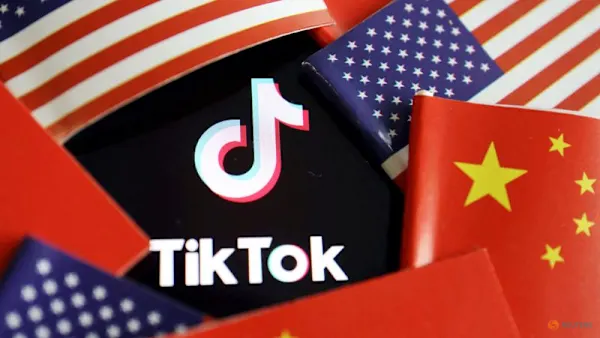By Sean Whitehead
Copyright iafrica

When Collective X released its Decoding ICT Job Demand in South Africa report in August, the research revealed a digital economy both bursting with opportunity and strained by gaps. More than 118,000 digital roles remain unfilled, with 41,000 of those at junior-level, positions perfectly suited for young people keen to break into the tech sector. The question is whether we’re preparing young South Africans with the right capabilities to seize these opportunities.
At our launch events in Johannesburg and Cape Town, one topic dominated every conversation: artificial intelligence. Would AI eliminate entry-level roles before young people could benefit? Or would it open entirely new pathways into digital work?
To dig deeper, I reached out to Brett Jones, Co-founder of OfferZen and one of our research partners, who has been closely tracking how AI is reshaping both hiring and workplace practices.
Overhyped Today, Underhyped for Tomorrow
“We’re in a huge hype bubble around AI,” Brett told me, “but at the same time, its future capabilities are massively underhyped.”
This apparent contradiction perfectly captures where we are right now. AI can feel like magic, anyone can now write code, generate images, or draft complex reports. Yet its failures are obvious, sometimes comical. Many professionals try it once, get mediocre results, and retreat to familiar methods.
Brett argues this is shortsighted. “We’re living through the biggest technological revolution since the internet, and some would argue the biggest in human history. What sets it apart is speed. With connectivity and mobile phones already everywhere, AI adoption accelerates overnight.”
The message is clear: today’s limitations should not distract us from tomorrow’s potential. Employers, educators, and young people need to fully embrace AI now because early adopters will gain an edge that late adopters will struggle to catch up to.
What AI Means for Junior Hiring
The pressing question for Collective X is whether AI is already closing doors for junior talent. OfferZen recently ran a survey of South African tech leaders, including CTOs, heads of engineering, and senior managers across the ecosystem. The survey received hundreds of responses and explored how AI is reshaping hiring, productivity, and culture in software teams. The goal is to publish the most comprehensive report of its kind on the impact of AI on software engineering in South Africa, which will be released in November.
Brett shared some early findings:
Only 1 in 5 leaders (20%) said they are hiring fewer juniors because of AI.Almost half (48%) reported that AI has not reduced their junior hiring.Around 30% remain uncertain.
“I thought the impact would be higher,” Brett admitted. “The reality is that most companies don’t yet have an AI strategy. According to our survey, only 18% of companies have a formal plan, while the rest are still figuring it out as they go, essentially flying by the seat of their pants even as leaders feel mounting pressure to prove business value.”
The feared exodus of junior opportunities, it seems, may be overstated, at least for now. But with roughly a third of leaders undecided, the real story is still unfolding. How this group moves will determine whether AI opens or closes doors for young talent.
Developers: Evolution, Not Extinction
Long-term trends, however, are undeniable. Current predictions are that about 40% of coding today happens in low- or no-code environments, but less than 20% of that makes it into production. Common challenges include integration complexity, security risks, and limited customisation. The fear that AI will replace developers misses a crucial point: while AI increasingly handles routine coding tasks, it struggles with the complex decision-making and technical judgment that makes software actually work in the real world. Skilled developers are not becoming extinct, their role is simply evolving.
Within the next couple of years, Brett predicts co-building software with AI will be standard practice. Engineers will focus less on writing every line of code and more on orchestrating, reviewing, and integrating AI output into production systems.
“The hottest programming language right now is English,” Brett quipped. “You can build something from nothing with just your voice. But production-grade systems still need skilled engineers. Writing code has never been the hard part, knowing what to build and why is what matters.”
What Young Talent Needs to Succeed
So what will it take for young South Africans to thrive in this AI-shaped job market?
AI proficiency will soon be a baseline requirement across all digital roles. But technical fluency alone is not enough.
“Employers are looking for qualities like curiosity, tenacity, and clear communication,” Brett explained. “AI gives you a PhD in your pocket but you still need the willingness to ask the right questions and use it effectively.”
In a world where AI generates content at speed, young people who experiment, iterate, and build usable solutions will stand out. This aligns with Collective X’s experience in work-integrated learning programmes. When exposed to hands-on projects, often with embedded AI tools, young people not only learn faster but also develop the resilience and confidence employers value.
Yet significant barriers remain: expensive data, inconsistent internet coverage, and inequitable access to devices. Talent may be everywhere, but opportunity is not.
This is why Collective X continues to innovate around financing, training, and employer partnerships. Work-integrated learning must not only teach AI tools but also connect young people to job pathways where those skills can translate into careers.
Employers: From Compliance to Curiosity
What about employers themselves?
Here, Brett was candid: “Most companies say they need AI, but few have implementation strategies. There’s no consensus on how to prepare teams, and no standard for training. Only one in three leaders say their business has formal AI policies or guardrails.”
This uncertainty risks compounding existing inefficiencies. Hiring processes, already designed more to filter out “bad hires” than attract great ones, could worsen with AI, unfairly screening candidates or amplifying distrust between job seekers and employers.
But AI could also be a catalyst for change. “Employers should be assessing how well juniors use AI in problem-solving, not excluding it from the process,” Brett argued. “That’s how you spot real talent.”
Preparing for an Uncertain Future
When we published our research on ICT job demand, we knew the data reflected the present. The future, shaped by AI, is harder to predict. But my conversation with Brett clarified that AI is not erasing the need for juniors, it’s reshaping how they deliver value.
The challenge for South Africa is whether we can harness this shift to open, not close, pathways for young people. Success requires training providers to embed AI literacy into their programmes, employers to experiment rather than wait for perfect strategies, and young people to embrace curiosity and collaboration with these tools. If we get this right, AI will not limit opportunities for young South Africans, it will multiply them.
By Rob Urquhart, Lead: Impact, Learning and Research at Collective X



